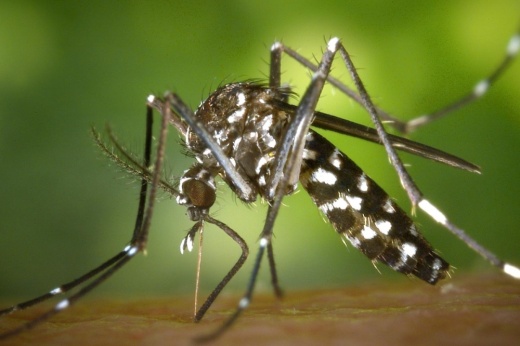The Williamson County and Cities Health District released recommendations May 14 to prevent mosquito breeding and reduce the risk of mosquito-based diseases.
What residents need to know
Mosquitoes can carry a variety of diseases that could spread to humans, including the West Nile virus, malaria and the Zika virus, according to the Centers for Disease Control and Prevention.
Mosquito populations can also increase after a heavy rainfall, as the insects will lay eggs in stagnant water, such as ponds, marshes and any containers holding water.
To mitigate the risk of mosquito-borne diseases, the heath district recommends residents take three steps:
- Dump standing water
- Use mosquito repellent
- Wear protective clothing
Residents should inspect and empty containers such as flowerpots, buckets, birdbaths and clogged gutters. Environmental Protection Agency-approved larvicides can also be purchased to treat water unable to be physically drained.
During dawn and dusk, those spending time outdoors should use insect repellant containing DEET, picaridin or lemon eucalyptus oil, according to the WCCHD.
Quote of note
“As a result of the recent heavy rains, we are seeing a large increase in mosquitoes across the county. As we near the holiday weekend and tend to spend time outdoors, I encourage everyone to tip and toss or treat any standing water around their home,” said Jason Fritz, WCCHD's Integrated Vector Management program lead, in a news release.
What else?
In 2023, mosquito traps throughout Williamson County tested positive for West Nile virus, including in the Brushy Creek Municipal Utility District, Cedar Park, Georgetown and other incorporated areas of the county. In September, Austin Public Health also reported the death of one Travis County resident after developing an illness caused by West Nile virus.





